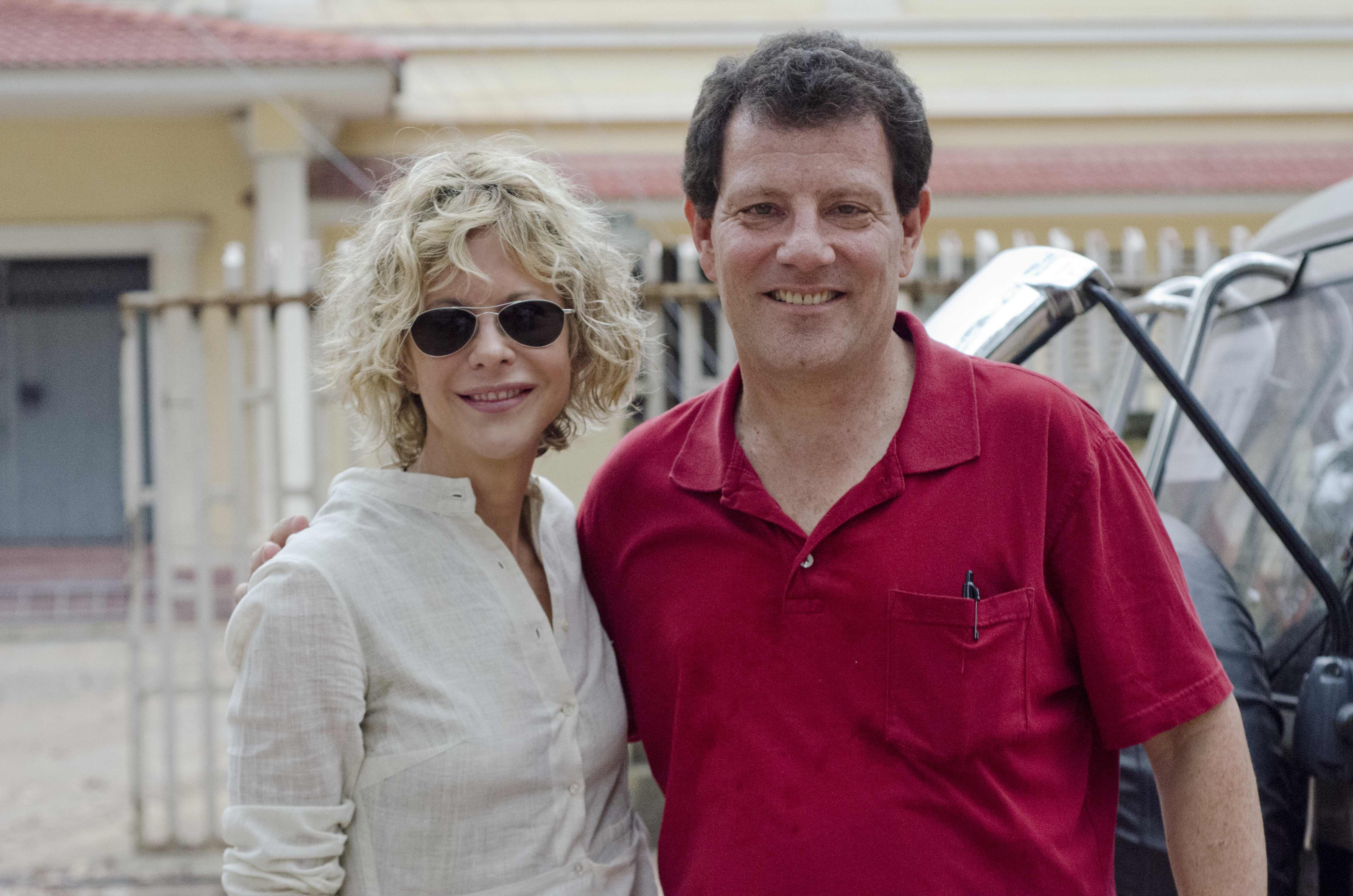
Last November, Meg Ryan tweeted a picture of a former sex slave she met while on location in Cambodia with journalist Nicholas Kristof to film the Independent Lens special, Half the Sky: Turning Oppression into Opportunity for Women Worldwide (airing on PBS October 1 and 2, check local listings).
Somana, the girl in Ryan's photo, lost her eye when a brothel owner gouged it out with a knife. She was able to escape when the socket became so infected customers no longer wanted her for sex. Thankfully, Somana and other girls are now being helped by anti-trafficking activist Somaly Mam, whose foundation rescues and mentors girls and gives them a safe place to live.
It's been almost a year since I saw Ryan's tweet, and, judging from the PBS previews for next week's Half the Sky premiere, there's hope for a happy ending for Somana and others like her.
Yet, the thought still lingers: Why, in many parts of the world, are women devalued, abused, even considered disposable?
It's the same question Half the Sky: Turning Oppression into Opportunity for Women Worldwide asks as cameras follow half a dozen of Hollywood's leading ladies (Ryan, America Ferrera, Diane Lane, Eva Mendes, Gabrielle Union, and Olivia Wilde) around the globe.
For Meg Ryan, experiencing the brothels of Phnom Penh was more than eye-opening.
"It was so moving, because these girls are not walking around like victims," she says. "One girl told me, 'People say it is hard to love. I don't think so at all. I think it's much harder to hate.' And this was from a girl who'd been kept in a barrel. They're triumphant little people. You're hearing terrible stories, but these girls are laughing, hopeful, and smiling."
A former sex slave herself, Somaly Mam says finding joy -- and confidence -- is a key part of the recovery process.
"To see every day the girls who are raped, beaten, tortured -- nobody can understand how hard a victim's life is. I know exactly what it is, and I can feel it. What I can do is to stand by them, give them love, fight for them, and rescue, empower, and rehabilitate them. I can give them a voice and a choice in their own life."
While poverty and corruption keep the sex industry alive, Kristof believes change can and will happen.
"On [our] trip, a local police official stood up, very firmly, to the traffickers after the brothel raid we watched," Kristof recounted in a recent email. "One huge problem is that police tend to be ineffectual in dealing with pimps, and sometimes they are the pimps. But these police stood up to military intimidation, despite the risk of getting shot, and that brothel is now out of business. There truly is progress, even in remote backwaters of Cambodia."

Meg Ryan and Nicholas Kristof on location in Siem Reap, Cambodia. Photograph by Jenni Morello. Courtesy of PMK BNC.
As for using privileged celebrities to tell the stories of some of the world's most impoverished women in Half the Sky, Ryan feels the juxtaposition is not lost.
"The actresses are the emotional conduits for the experience," she says. "Fame is such a perverse power when it comes to this type of advocacy. Celebrities bring attention to the problem, but they're also resented ... How we [as people from different cultures] become sensitive to one another and less judgmental and more forgiving is what's good. We're all human. If we can increase compassion in the world, then we have a better place."
Many people ask, "Why should we care about the problems of women on the other side of the planet when we have our own troubles here at home?"
Ryan says seeing is believing. She credits a 2007 trip to India with CARE for demonstrating to her the importance of girls' education in other countries, and her recent Cambodia experience -- the atrocities of which left her numb in disbelief -- only reinforced the notion that we're all in this together.
"I don't think that there's a difference [between troubles at home and abroad]. Everybody affects everybody else. Sometimes these outrageous stories pique something in you. We may not be not solving the problem of the third world girl [in Half the Sky], but we're understanding what human dignity is."
Somaly Mam concurs: "I hope that Half the Sky can show people the solutions to the problems, and the joy along with the suffering -- where there is despair, there is also hope."
Half the Sky: Turning Oppression into Opportunity for Women Worldwide airs on PBS October 1 and 2. Check local listings.
